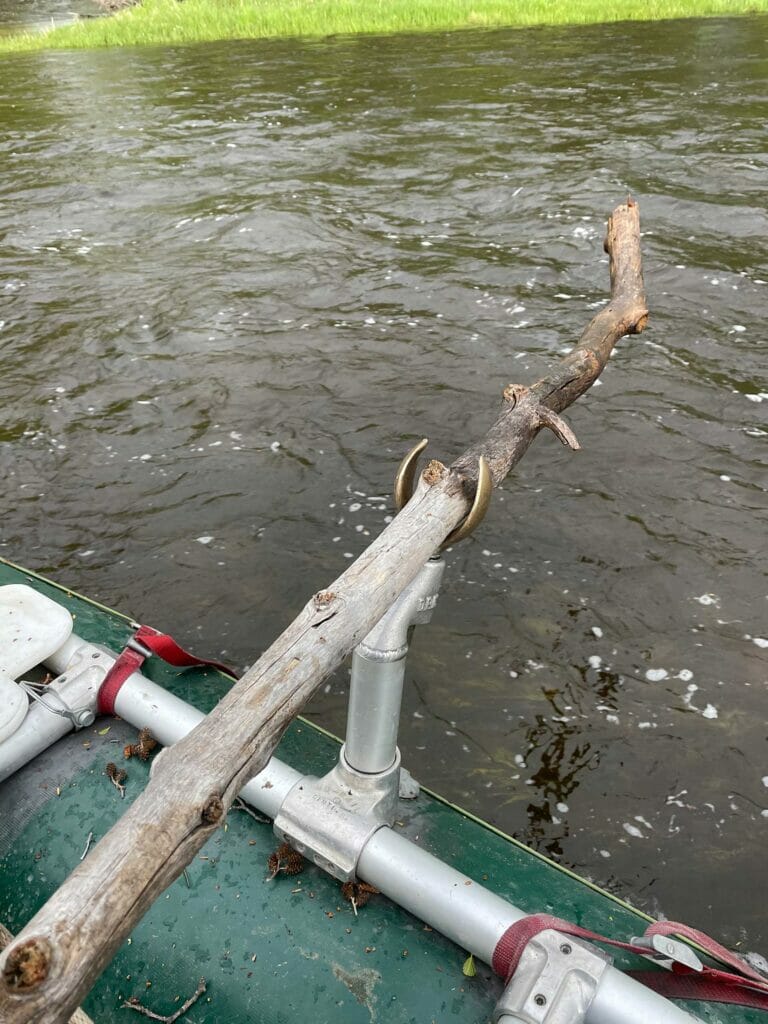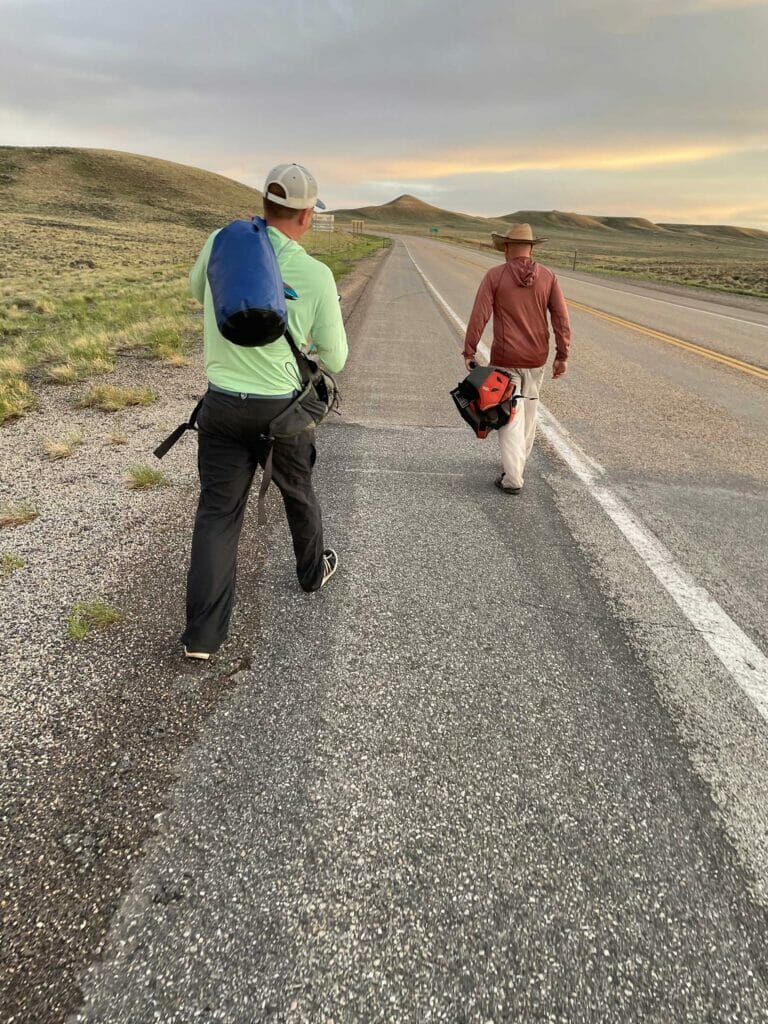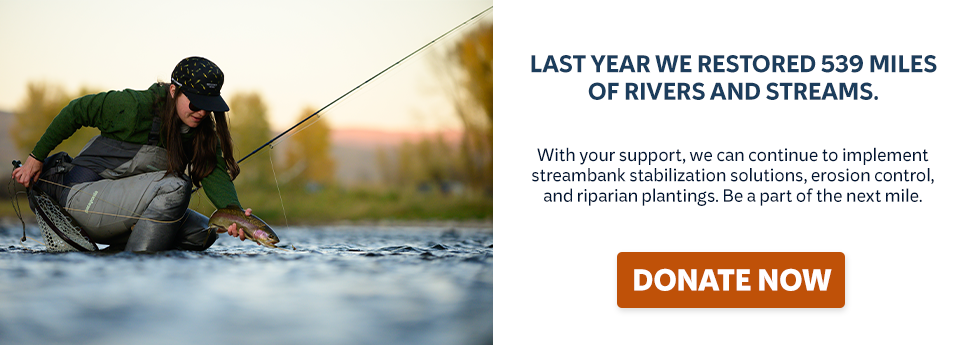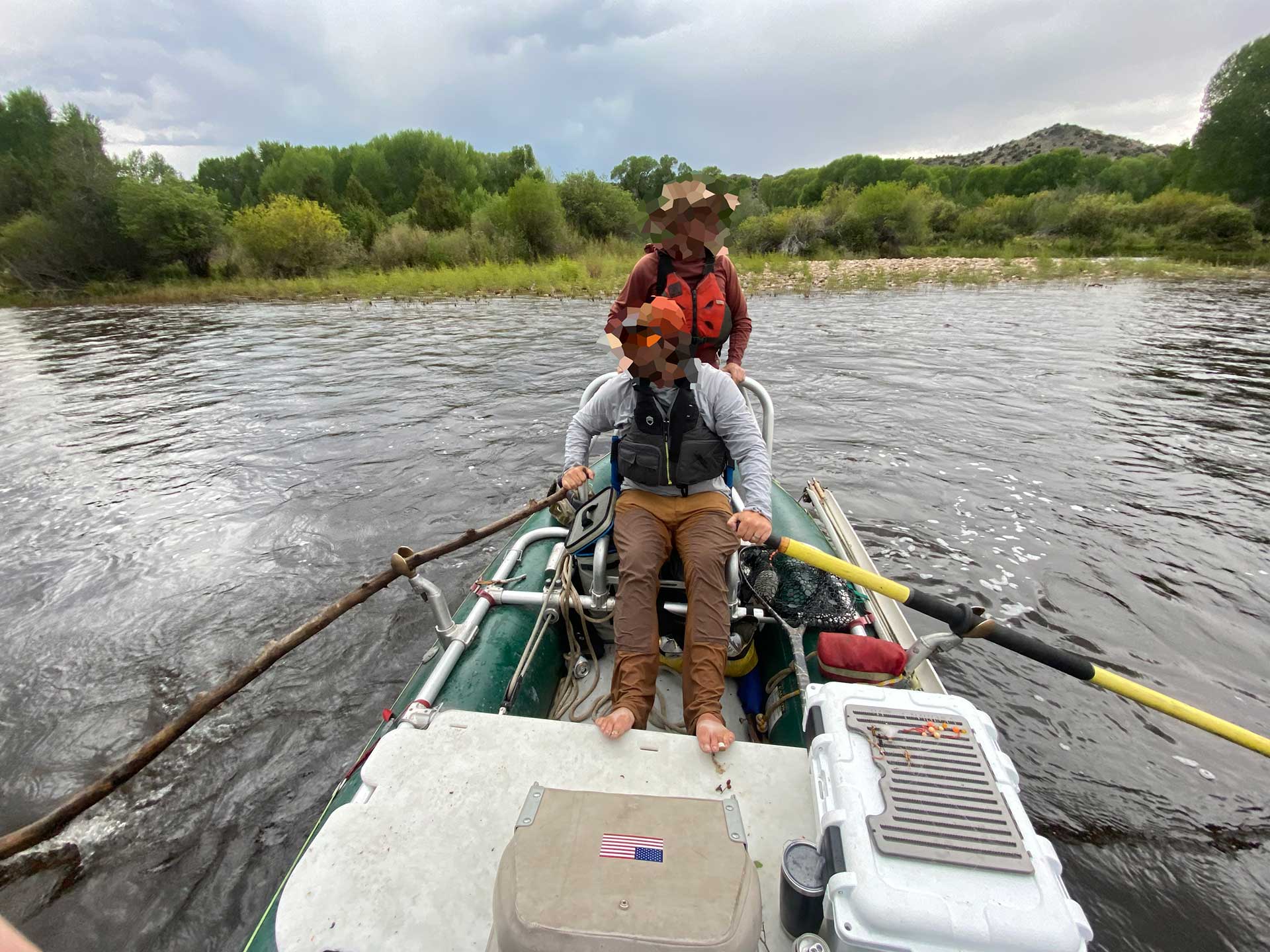A few weeks ago my good friends who shall remain faceless and nameless to protect their identity/stupidity took a little trip to float a river just north of the Colorado border in Wyoming. Before the trip I was told they talked about the fact that they had somehow misplaced the spare oar for the single boat on this adventure from a previous trip. They chatted about getting another, but in the end nothing was done about it, as it was decided that this was a fairly mellow river where not much could go wrong.
Somewhere through the middle of said float the bow and stern angler were switching rods in a bit of fast water and just at that moment the rower somehow popped the oar out. As it slid under the boat they all debated ( apparently for too long) about jumping in and grabbing the oar, or if it would float back to them. The short story: as the oar drifted further and further away, the composite shaft finally filled with water and sunk quite a distance upstream. They never saw it again. The real bummer was they had oar tethers in the boat too, but since there was no whitewater decided they weren’t necessary. Oops…

Without a spare they tried to fashion a stick that would work as an oar. It didn’t. They ultimately ended up missing their intended take out because of the missing oar, strong winds and a serious current. When they finally made their way to shore they we quite a distance from the take out and decided the smartest thing to do was leave the boat and hike out.

Around six miles later they finally made it to their car. The next day they borrowed two oars, which in total made three (now you’re using your heads, boys) hiked back to the boat and floated out to a take out below.
What a waste of a day.
Moral of the story? Always, always carry a spare oar on your boat no matter how mundane the water seems.
In addition to that, I would say always carry oar straps, just in case. As well a spare oar tower and oarlock in your repair kit. Many people think that’s overkill and just for serious whitewater, but I’ve personally seen an oarlock’s pin sheered, and the whole oar, counterbalance, plus the oarlock sink in what was incredibly slow moving water. The rower simply pinned the blade in between two rocks while the boat was perpendicular to the current. Boom the day was over. Things to think about…



